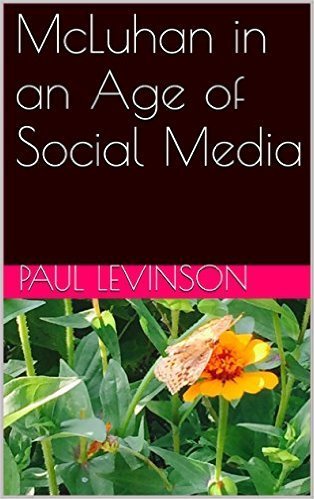McLuhan, the Alphabet, and Nudity
There's a famous, true story about a lecture Marshall McLuhan gave at Louis Forsdale's seminar at Columbia University in New York City in the 1950s. McLuhan observed, at some point, that nudity wasn't a notable thing until the alphabet -- that sensitivity about nudity was an effect of alphabetic literacy.
When McLuhan concluded the lecture, Forsdale opened up the seminar to questions. Robert K. Merton, often known as the "dean" of American sociology, was in the audience. He raised his hand, was called upon, and stood. His face was almost purple with anger. "I don't where to begin," he began, "everything you say is nonsense, where is your evidence ... what on Earth does nudity have to do with the alphabet?" And he went on like that for at least ten minutes.
McLuhan rose, a twinkle in his eye, a smile on his face. "Oh," he said, "you didn't like that idea? Well, how about this one?" And he proceeded to talk, much longer than Merton, about something completely different.
Now, this event is often cited, including by me, as an example of McLuhan prizing exploration and probes over explanation and proofs. And it certainly is.
But someone asked me the other day what I thought McLuhan really meant about alphabetic literacy being the ground for interest in nudity. This was my answer:
I never asked McLuhan about this, so I don’t know exactly what he meant about the alphabet making people more sensitive about nudity. But here’s what I would say, applying McLuhan’s thinking to this question: The alphabet is an abstract mode of communication – the letters of the alphabet have no direct resemblance to the objects they describe in written words. The word “cow” for example, looks nothing like a cow, the word “sun” looks nothing like the sun, etc. (Unlike ideographic writing, in which the written symbols look at least a little like the objects they describe.) So, people who use the alphabet are aware of the “cover” or the alphabetic word, and the reality it describes (the word “sun” and what the sun really looks like). And clothes, of course, are a cover, too – a dress or a shirt doesn’t really look like the naked body beneath. But just as we use the alphabet to write about things, so we usually see and interact with people in clothes. In such a society, we become hyper-aware, more sensitive, about someone wearing no clothes at all.
So, what did you think of my explanation? Did you like it? Not sure? Ok ... let me tell you how my Prius retrieves Cinderella's Pumpkin Coach, when you leave it in the driveway for more than a month, undriven in this Covid lockdown.
Levinson at Large
- Paul Levinson's profile
- 341 followers




